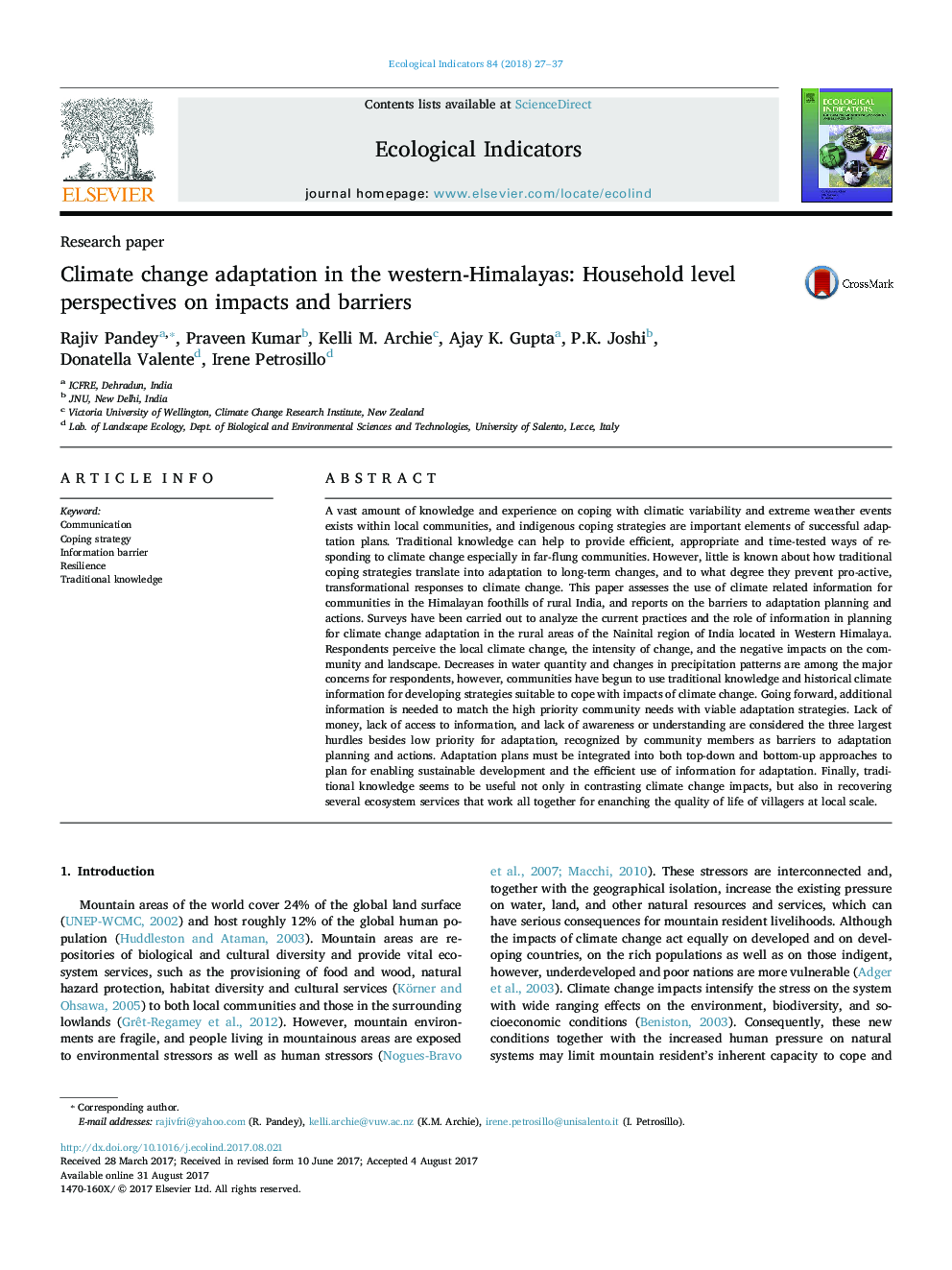| کد مقاله | کد نشریه | سال انتشار | مقاله انگلیسی | نسخه تمام متن |
|---|---|---|---|---|
| 5741526 | 1617118 | 2018 | 11 صفحه PDF | دانلود رایگان |
- This study assesses climate change adaptation of Himalayan communities with focus to role of information and communication.
- This paper assesses the barriers of climate change information for adaptation planning and action.
- Traditional knowledge is the key for developing strategies for rural communities suitable to cope climate change impacts.
- Additional information is needed to match the high priority community needs with viable adaptation strategies.
- Adaptation plans must be integrated for enabling sustainable development through the efficient use of information.
A vast amount of knowledge and experience on coping with climatic variability and extreme weather events exists within local communities, and indigenous coping strategies are important elements of successful adaptation plans. Traditional knowledge can help to provide efficient, appropriate and time-tested ways of responding to climate change especially in far-flung communities. However, little is known about how traditional coping strategies translate into adaptation to long-term changes, and to what degree they prevent pro-active, transformational responses to climate change. This paper assesses the use of climate related information for communities in the Himalayan foothills of rural India, and reports on the barriers to adaptation planning and actions. Surveys have been carried out to analyze the current practices and the role of information in planning for climate change adaptation in the rural areas of the Nainital region of India located in Western Himalaya. Respondents perceive the local climate change, the intensity of change, and the negative impacts on the community and landscape. Decreases in water quantity and changes in precipitation patterns are among the major concerns for respondents, however, communities have begun to use traditional knowledge and historical climate information for developing strategies suitable to cope with impacts of climate change. Going forward, additional information is needed to match the high priority community needs with viable adaptation strategies. Lack of money, lack of access to information, and lack of awareness or understanding are considered the three largest hurdles besides low priority for adaptation, recognized by community members as barriers to adaptation planning and actions. Adaptation plans must be integrated into both top-down and bottom-up approaches to plan for enabling sustainable development and the efficient use of information for adaptation. Finally, traditional knowledge seems to be useful not only in contrasting climate change impacts, but also in recovering several ecosystem services that work all together for enanching the quality of life of villagers at local scale.
Journal: Ecological Indicators - Volume 84, January 2018, Pages 27-37
